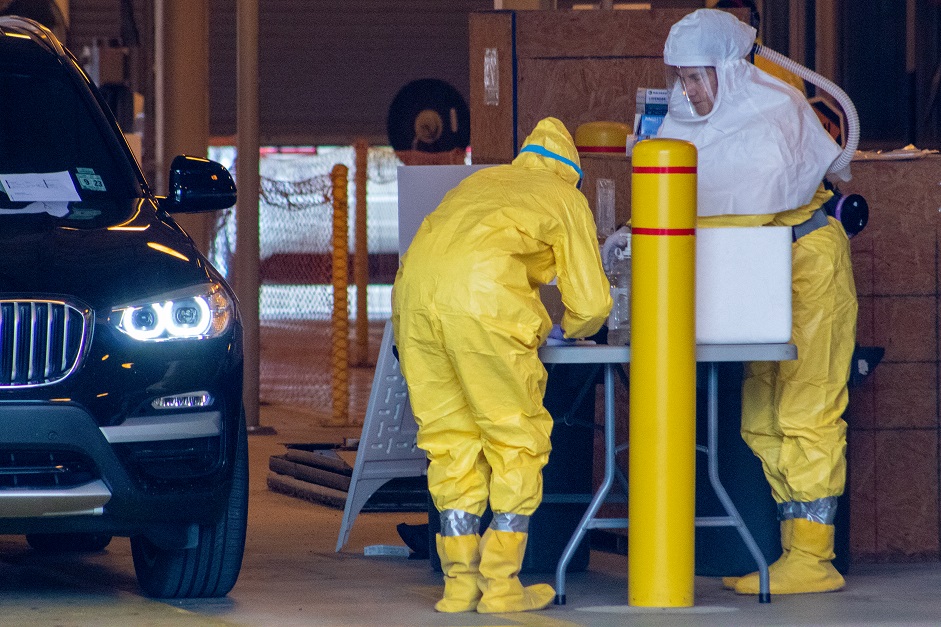COVID is Here to Stay for Now

The United States has been shattering COVID records all week. On Thursday more than 77,000 new COVID cases were reported, more than triple the number just a month ago. And the number of deaths on Thursday increased by nearly 1,000 people. In fact, the United States is currently the worst affected country in the world, with over 3.5 million people infected with COVID and over 138,000 who have perished. And here in New Jersey, while the number of cases and deaths have fallen from our peak in April, it is quite unrealistic to assume that we are immune to a second wave of infections and deaths. We have begun to see localized outbreaks associated with graduation parties and summer camps. And the COVID infection surges throughout the country can travel by car, train and plane to the state.
COVID is here to stay for now. The Center for Disease Control Director Dr. Robert Redfield has warned that “the fall and winter of 2020 and 2021 will probably be one of the most difficult times we've experienced in American public health.” And, yes, medical treatments have improved, and studies on prevention measures have been peer reviewed and supported, but this has not led to the flattening of COVID nationally in the United States. In part this is because that many leaders have politized the science that we desperately need. Masks, which are a significant prevention method, cannot effectively play that role if people resist wearing them because they are viewed as anti-Trump or an affront to individual freedoms. Science experts from Dr. Anthony Fauci to state and local officials and medical professionals, have found themselves on receiving end of harassment and death threats. And conspiracy theories from Plandemic to vaccines with microchips to even blaming COVID on 5G internet, fill people’s Facebook and Twitter feeds. Taken together, these sociological factors will continue to facilitate the spread of the COVID virus accelerating the unmasked COVID droplet transmissions from person to person.
With a real concern for a dire fall and winter, people will continue to get sick, some seriously, and other will die. Several Governors and Mayors have subtly (and not so subtly) been warning that shutdowns may be just days or weeks away. If trends hold (and this recent history of this past spring is an indicator), we may be at a shutdown again at some point in 2020. The economic impact has already been extremely profound on many Americans, and a second shutdown will only deepen the economic pain, along with exacerbating existing inequities. It is time to move forward an economic agenda that will ensure that Americans can economically thrive. Central to this agenda is universal health care. This spring five million people lost their health insurance during the pandemic. Health insurance must be decoupled from employment; so that economic downturns (particularly those during a health pandemic) do not lead to health crises for workers and their families.
The pandemic has cast a spotlight on the precarious nature of job security and the growing wealth gap by race and gender. The tough choices working parents are weighing this summer as they try to balance work and remote learning in the fall have exacerbated the work and family challenges many working parents (and particularly working mothers) face. And many essential workers, particularly those who are older and/or have co-morbidities, are forced to go to work despite the risks to their health. It is past due for the United States to implement a universal basic income. Universal basic income—a regular payment to every American—is not a new idea. Martin Luther King laid out a plan for universal income in his 1967 book Where Do We Go From Here: Chaos or Community? and President Nixon proposed a guaranteed minimum income in 1969. Universal basic income addresses the gaps in our social safety net, along with the inequities and changing nature of our labor market. Last year, Newark Mayor Ras Baraka launched a task force on guaranteed income and he has joined a coalition of fifteen mayors to pilot the policy in their cities.
Finally, New Jersey and the nation, should follow the lead of Governor Wolf in Pennsylvania in providing hazard pay to essential workers during the pandemic. Nationally, the Coronavirus Frontline Workers Fair Pay Act, which is part of the HEROS Act passed in the House of Representatives, would pay high-risk health care workers a hazard pay of $18.50 per hour, and other essential workers (such as grocery workers) would earn an extra $13 per hour. Essential workers are exposing themselves to possible infections as they provide medical care in hospitals, nursing homes and other facilities, stock grocery shelves and deliver goods. Hazard pay not only compensates for the risks these workers are taking, it also would help to recruit workers to the jobs.
We certainly know more about COVID transmission and treatment than we did in January, and we also know the dire economic and social impacts of the virus. We also know the policies and programs that can mitigate the impacts of COVID on American’s economic security. It is time to put on our masks and implement economic and social policies that ensure stability.





